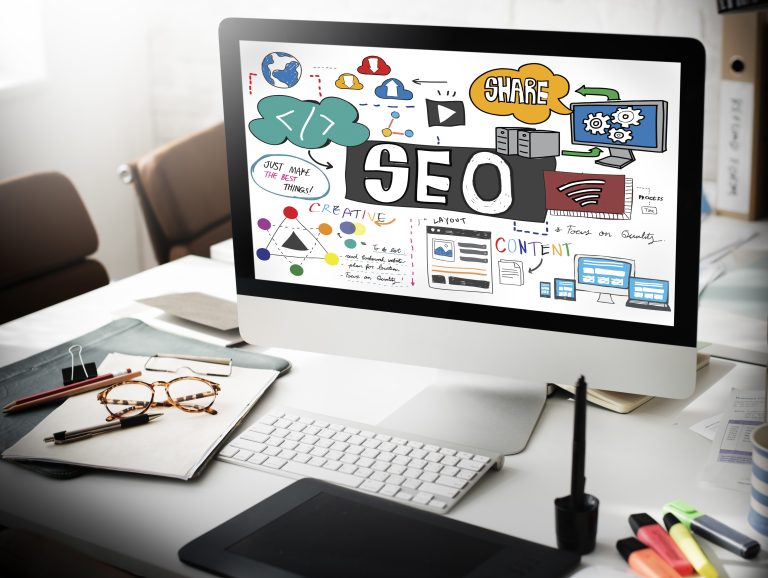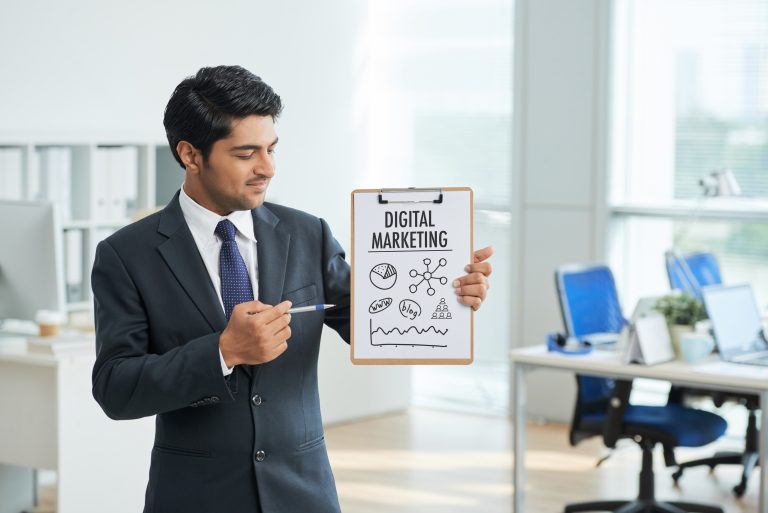Social Media Marketing

SEO (Search Engine Optimization)
SEO is the process of optimizing a website to rank higher on search engines like Google. This service involves keyword research, on-page and off-page optimization, technical SEO, and creating high-quality content. The goal is to make the website more attractive to search engines and users alike, which can lead to increased organic traffic.
- Benefits of SEO: Improved visibility, increased credibility, and long-term traffic growth.
- Common SEO Techniques: Keyword optimization, backlink building, and mobile optimization.
Content Marketing
Content marketing focuses on creating valuable, relevant, and consistent content to attract and engage a specific audience. This can include blog posts, videos, infographics, and eBooks. The idea is to provide information that solves problems for potential customers, building trust and loyalty.
- Benefits of Content Marketing: Better engagement, stronger customer relationships, and improved brand authority.
- Types of Content: Blog articles, videos, social media posts, and whitepapers.
Social Media Marketing
Social media marketing involves using platforms like Facebook, Instagram, Twitter, LinkedIn, and TikTok to promote products and interact with audiences. Social media marketing can include organic posts, paid ads, and influencer collaborations. It’s an effective way to increase brand awareness and engage with customers.
- Benefits of Social Media Marketing: Enhanced brand loyalty, higher engagement rates, and direct feedback from customers.
- Key Platforms: Facebook, Instagram, Twitter, LinkedIn, and Pinterest.
Email Marketing
Email marketing is a direct form of digital marketing that involves sending targeted emails to a list of subscribers. These emails can be used to promote products, share updates, or provide valuable content to keep the audience engaged.
- Benefits of Email Marketing: High ROI, personalized communication, and customer retention.
- Popular Types of Emails: Newsletters, promotional emails, and transactional emails.
Pay-Per-Click (PPC) Advertising
PPC advertising allows businesses to display ads on search engines and social media platforms and pay only when a user clicks on the ad. Platforms like Google Ads and Facebook Ads offer PPC options, making it a cost-effective way to reach a targeted audience.
- Benefits of PPC: Instant traffic, measurable results, and high precision in audience targeting.
- Common PPC Platforms: Google Ads, Bing Ads, and social media ads.
Influencer Marketing
Influencer marketing leverages individuals with a strong online following to promote products or services. Brands collaborate with influencers who have an engaged audience, creating a personal recommendation that feels more trustworthy to consumers.
- Benefits of Influencer Marketing: Authentic endorsements, increased brand awareness, and a direct line to a specific demographic.
- Types of Influencers: Nano, micro, macro, and celebrity influencers.
4. Advanced Digital Marketing Services
Beyond the core services, there are more specialized digital marketing techniques that can enhance a business’s reach and engagement.
Affiliate Marketing
Affiliate marketing is a performance-based marketing model where businesses reward affiliates (third parties) for driving traffic or sales to their website. Affiliates promote products through unique links, and businesses pay commissions on sales or leads generated.
- Benefits of Affiliate Marketing: Cost-effectiveness, increased reach, and scalability.
- Popular Platforms: Amazon Associates, ShareASale, and CJ Affiliate.
Video Marketing
Video marketing involves creating video content to promote products or services. It’s an engaging format that can capture attention quickly, making it ideal for social media and YouTube.
- Benefits of Video Marketing: Higher engagement rates, increased information retention, and potential for virality.
- Common Types of Video Content: Product demos, tutorials, testimonials, and live videos.
Mobile Marketing
Mobile marketing focuses on reaching users through mobile devices, such as smartphones and tablets. Techniques include SMS marketing, in-app advertising, and mobile-friendly websites.
- Benefits of Mobile Marketing: Accessibility, higher engagement on mobile, and location-based targeting.
- Popular Mobile Marketing Strategies: SMS campaigns, push notifications, and mobile app advertising.
5. Choosing the Right Digital Marketing Services for Your Business
Not every business needs to invest in every digital marketing service. The best approach is to evaluate your goals, target audience, and budget before deciding which services to prioritize. Here are a few steps to consider:
- Identify Your Goals: Do you want to increase brand awareness, generate leads, or improve customer retention?
- Know Your Audience: Research where your target audience spends time online and which channels they trust.
- Set a Budget: Digital marketing can be cost-effective, but it’s essential to allocate resources wisely.
- Consider Expertise: If you lack the expertise, consider hiring a digital marketing agency or a freelance professional to manage your campaigns effectively.
6. Conclusion
Digital marketing services offer a dynamic and effective way to grow your business in the online world. From SEO to social media, each service plays a unique role in enhancing brand visibility, engaging with customers, and driving sales. By carefully choosing the right digital marketing services, you can position your business for success in an increasingly competitive digital landscape.
Whether you’re a small business or an established brand, leveraging digital marketing is essential to stay relevant, connect with your audience, and achieve sustainable growth. Embrace the possibilities of digital marketing and watch your business thrive in the digital age!



